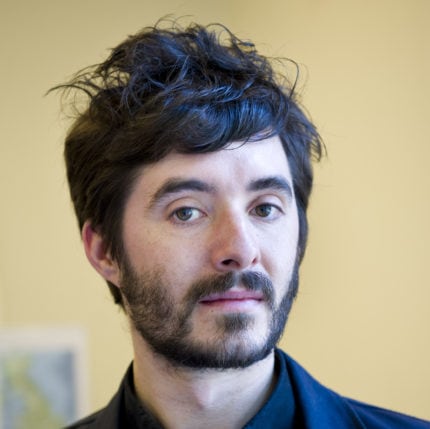Today sees the return of the Being Human festival of the humanities. Taking place nationwide, our festival pulls together a programme featuring over 250 activities, organised by researchers across the UK.
Each of these activities is dedicated to taking research in the humanities and making it relevant, accessible and fun to communities.
Coordinating projects on this scale is never easy. In 2020, however, it’s often felt like a battle against insurmountable odds. Our plans have had to change in response to every shift in government guidelines. Events have had to shift, adapt, and adapt again. About the only thing that we haven’t needed to change is our weirdly prescient theme: “New Worlds”.
Putting a festival programme together against the backdrop of a national pandemic has been tough. However it has also offered an opportunity to reflect on the core value of public engagement, and what university/community collaboration can achieve under the most difficult circumstances.
Research, place, people
Being Human is a particular kind of festival. Supported by funding from our partners at the Arts and Humanities Research Council and the British Academy, a typical Being Human event is research driven, but rooted in place. Our activities work best when deeply rooted in the fabric of the towns, cities and villages in which they are held.
A good example is our 2020 activity Mining Migrations. Rooted in research being undertaken at the University of Keele, this outdoor exhibition uses the Chatterley Whitfield Colliery in Staffordshire as a backdrop to explore the multiculturalism of a key industry in an area often thought to be synonymous with racial tensions.
The places and events change each year, from projects investigating smell and memory in the Black Country, to explorations of the archeology and mythology of the Orkney Isles. But the key ingredients remain the same. At the heart of the Being Human model is an overlap between research, place and people.
Reshaping the civic
2020 has challenged this model. The types of community and cultural organisations that form the bedrock of the festival are the kind of institutions that have been hit hardest by the Covid-19 outbreak. Familiar venues have been shuttered. Local councils have grappled with ever-changing rules and restrictions. Museums, galleries, bars and cafes have closed, and re-opened, and closed again.
Across the UK a patchwork of regional restrictions has reshaped our cultural and communal lives.
On a psychological level, too, the pandemic has shifted the way that we think about towns and cities. Local lockdowns make sense from a public health point of view, but can also perpetuate negative stereotypes. Localism and regional pride may have been boosted by Covid, but the flip side has often been a fueling of rivalries and regional tensions.
New ways of engaging
Faced with these challenges, how do we find ways to engage? With interactions limited, and social and cultural lives increasingly migrating online, how do we maintain vital links to people, place and community? Our festival programme this year provides real insight into how people can come together to create innovative solutions.
In Sheffield, for example, communities are being invited to take part in a project called The People’s Palace of Possibility. A mixed media, participatory performance, this project sees active engagement achieved partly by post. Participants will have “mail art” activity packs delivered to their homes, enabling them to join in an interactive performance from the comfort of their own homes.
Other activities have responded directly to the pandemic itself. In Glasgow, a Question Time for Memory Institutions is exploring what museums and archives collected during the first Covid lockdown to represent community experiences. In Edinburgh, a Lothian Diary Project draws on vlogs and audio diaries to explore the everyday lockdown experiences of people in Scotland’s capital city.
Still other activities have focused more on reshaping narratives of place. In Derby, a programme has been planned in collaboration between the University of Derby’s History department and Derby Museums. A range of activities will draw on the museum’s collections to explore the city’s place in an international history of industry and Empire – including working directly (if remotely) with communities to constructively re-label colonial museum collections.
A glimpse of the possible
One of the inspiring things about working on Being Human this year has been witnessing the determination of academics, and their cultural and community partners, to see their activities through. As plans have changed, and changed again, the level of resilience and innovation on display has been incredible.
This speaks volumes about the value that academics, alongside their cultural and community partners, derive from public engagement. The fact is that public engagement has not only survived in the midst of a pandemic. It has thrived.
Whatever new worlds emerge after Covid-19, no one is saying that the type of activities we support as part of Being Human are going to heal all the wounds. In terms of embedding connections between research, place and community, however, our programme might just offer a glimpse of what’s possible.












